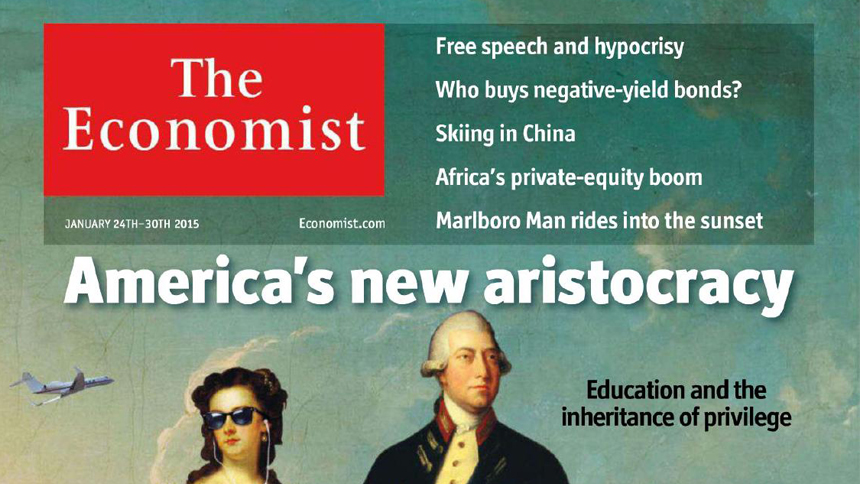While many freelancers begin their careers with high hopes of financial success, most find it difficult managing the constant cycle of pitching, writing, invoicing and chasing past-due checks.
Yes, it’s hard out there on those self-employed streets—but there is hope.
Also on Mediabistro


We talked to three freelancers who have banked six figures at least one year of their freelance careers. Follow these sure-fire steps and you’ll be ascending from dollar-menu dining to true financial security in no time.
Plan in Advance
It sure would be nice if writers could just jot down their yearly income goals and then wait for the assignments—and checks—to magically show up. But you’ve heard it before: If you fail to plan, you plan to fail.
The key to an effective income earning strategy, says Kelly James-Enger, a 17-year veteran freelancer, is to focus efforts on what you can control and to stop stressing about what you can’t.
“You can’t control how many assignments you get, but you can control how many pitches you’ll send out each week,” she says. “Even if you haven’t seen those [pitches] turn into [an assignment], you know that you’ve met [your] goals. And there’s plenty of research that shows that meeting goals makes you more confident and spurs you on to meet more goals.”
“When you’re beginning and you don’t have any assignments on your plate, all the time you have should be spent on pitching,” says Linda Formichelli, co-founder of the Renegade Writer blog and author of the eBook Write Your Way Out of the Rat Race and Into a Career You Love.
“So if you don’t have a job and you have 40 hours a week that you want to write, those 40 hours are spent pitching and networking.”
“If you want to make $60,000 in the coming year, that means if you work five days a week and you take two weeks off for vacation, you [need to] make $250 a day,” she explains. “So if I take an assignment that makes $1,000, it should take me about four days of work. If I take on a book proposal that pays $3,000, then I know that should be about 12 days of work or I’m going to lose money.”
In addition to meeting regular marketing goals, Enger also suggests keeping track of what she calls a “daily nut” —the minimum dollar amount that must be earned on a daily basis to stay on track toward income goals. It’s sound advice for writers who may already have regular assignments, but wonder if they should drop them to chase higher-paying gigs.
Still shooting for $100,000-plus? Your daily nut is about $400.
Seek New Markets
When you first took the freelance plunge, you probably knew immediately which of the glossy magazines you wanted to write for—perhaps Glamour or GQ. Then, reality set in. Most of your time was spent crafting super-detailed pitches that may or may not have generated an assignment, and the measly checks in your mailbox left you dreaming of a well-paid 9 to 5.
So now that you know how much you need to earn each day, it’s time to find as many new buyers as possible for your work.
“Writers think that if they want to make a lot of money they have to pitch the biggest magazines because they pay the most,” says Formichelli. But, she warns, those are so difficult to break into that “not many people make a living writing only for the consumer magazines.”
As a veteran freelancer, she has shifted her writing focus to include trade (business-to-business) and custom publications (like the ones you get from your credit card or insurance company). It’s a strategy she suggests for other writers who want to earn more cash, too.
“A trade magazine might pay 50 cents a word, or a custom-published magazine might pay $1 a word, but they’re a lot easier to break into,” Formichelli explains. And, she adds, the added advantage for writing for diverse markets is that editors tend to re-assign more frequently to freelancers that they like, which often eliminates the perpetual time suck that is pitching.
Formichelli says that the best way to break into trades and customs is to send a letter of introduction with a few paragraph-long story ideas. To find a list of publications to write for, visit the Custom Content Council or Free Trade Magazines.
Turn Up the Volume
Time is certainly one of a freelancer’s most important resources. Once the assignments start rolling in, doing the most with the 24 hours in each day can make all the difference between ramen noodles and lobster.
A large part of the reason why Miranda Marquit, a freelance blogger and author of Confessions of a Professional Blogger: How I Make Money as an Online Writer, cleared six figures in 2013 is because she writes a lot. As in, 30 to 40 blog posts per week. And with fees that range from $50 to more than $500 per post, it’s easy to see how the dollars add up fast.
So how can you become a speed-writing, money-making freelancer?
“I’ve been writing about finances for about six years, so I have that kind of general knowledge base to draw on,” says Marquit. “If you specialize in a particular area and make that your area of expertise, then you can start picking up speed.”
Focusing on health, fitness and nutrition also means that Enger is on top of the latest happenings in her industry, which makes for timely, relevant pitches. And after years of conducting hundreds of interviews, she has countless numbers of experts on speed dial. Enger also agrees that honing in on a writing niche is a good way to churn out assignments quickly and make more money, as she details in her book Ready, Aim, Specialize!: Create Your Own Writing Specialty and Make More Money!
“Number one, you’re not writing from scratch each time,” Enger says. “Because I’ve written workout stories before and I’m an ACE certified trainer, I don’t have to look up how to safely perform a squat or what muscle groups this works.” A niche can also be developed in the types of stories you write, not just the topics you cover, added Enger.
“I know a writer who specializes in doing content for employee newsletters and in-house publications,” she says. “So that’s not really a specialty in terms of subject area, but it is a specialty in terms of the kind of work that she does and the kinds of clients she writes for.” In either case, specializing creates a level of skill and expertise that makes writing more—and earning more—automatic.
The Takeaway
Though it may require a paradigm shift, earning significant cash is totally doable as a freelancer.
Being clear about your goals, seeking new markets and then hustling hard to get those assignments turned around quickly is really all it takes. As Enger, Formichelli and Marquit have proven, “six-figure” and “freelancer” don’t have to be mutually exclusive.







